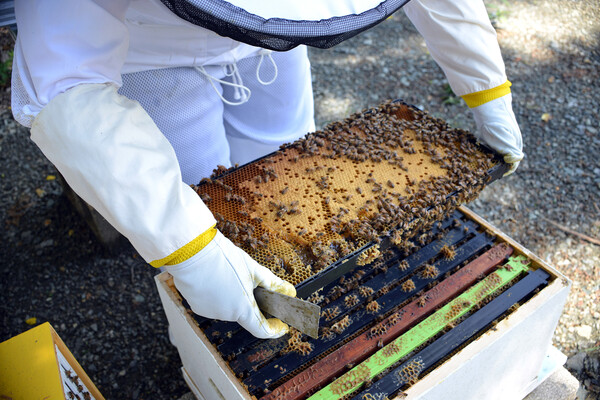
nocred
If you’ve ever watched a movie set on a college campus, then you know that American college students are expected to drink, which is a lot and often. That expectation can be hard for real life students to ignore, despite its consequences on their health.
New research from the Communication Neuroscience Lab at the Annenberg School for Communication, along with researchers from within and outside Penn, has found that encouraging college students to create psychological distance between themselves and triggers to drink alcohol can reduce how often they drink.
Prior research has found that people with alcohol use disorder can be motivated to make healthier choices regarding drinking by using mindfulness or perspective-taking thinking, also called psychological distancing.
“In psychological distancing, a person is trained to create mental space from their immediate reactions to triggers to engage in unhealthy behavior, like binge eating or drinking,” says lead author Mia Jovanova, a recent graduate of the Annenberg School for Communication’s doctoral program, “possibly by redirecting attention away from reactive thought patterns, and by de-automatizing responses to triggers.”
Since college students are often faced with triggers to drink alcohol, researchers at the lab wondered if psychological distancing techniques could encourage healthy college students to make better choices regarding alcohol before problem drinking starts.
The team tested two strategies for creating psychological distance from reactions to alcohol triggers: mindfulness and perspective-taking.
For 28 days, participants reported their alcohol use in the morning and night and received text message reminders related to the study. For members of the experimental groups, for one week these reminders were neutral control messages, while during the next they were reminded to practice their specific training—mindfulness or perspective-taking—when encountering alcohol.
“Our main comparison asked whether individuals were less likely to drink on the weeks when they got the psychological distance intervention prompts versus the control prompts,” Jovanova says.
The researchers found that both mindfulness or perspective-taking reminders reduced drinking frequency (the number of drinking occasions per week) but did not influence the amount of alcohol consumed during these drinking occasions.
In a replicated study during the pandemic, participants in the mindfulness and perspective-taking groups drank less frequently on weeks that they received intervention reminders.
These studies show that interventions as simple as text message reminders, that draw on psychological distancing, have potential to make positive changes in alcohol use frequency among college students who are social drinkers, the researchers say.
This story is by Hailey Reissman. Read more at Annenberg School for Communication.
From Annenberg School for Communication

nocred

The sun shades on the Vagelos Institute for Energy Science and Technology.
nocred

Image: Kindamorphic via Getty Images

nocred